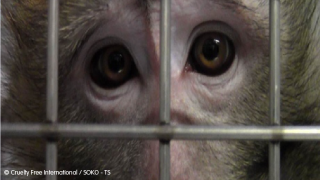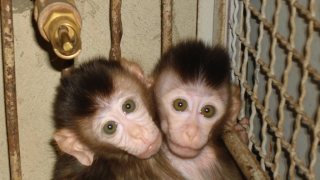
Cruelty Free International has spoken out against the claims made by the Max Planck Institute for Biological Cybernetics (MPI) in Tübingen, Germany regarding the need for its research on monkeys.
The Institute maintains that such research on monkeys should not be permitted under the EU legislation governing animal experiments, particularly when more worthwhile research using humans can be, and often is being, done.
In a strong rebuttal, Cruelty Free International shows that:
- The value to human medicine of this kind of work on monkeys is no more than speculative
- There are important differences between monkeys and humans in brain structure and function
- The significance of results of ethical research on humans is being underestimated by researchers using monkeys
- Ethically conducted studies in humans are more than feasible—they already take place, and hundreds of studies have been conducted.
Most of the research carried out on monkeys at the MPI is fundamental research with no direct link to treating human diseases. The likelihood of results from fundamental research on animals leading to advances in human medicine is very slim.
The Cruelty Free International rebuttal explains that ethical invasive brain research using electrodes in human volunteers has been going on since the 1950s. Non-invasive imaging techniques enable a broader range of brain functions and connections to be studied, and are of increasing importance to neuroscientists. Studies on humans enable complex brain processes such as episodic memory and language to be studied- humans can report what they understand, see and feel!
In September 2014, Cruelty Free International and Soko Tierschutz released information from an undercover investigation detailing the appalling suffering of monkeys used in neuroscience research at the Max Planck Institute for Biological Cybernetics (MPI) in Tübingen, Germany.
Macaque monkeys were subjected to highly invasive brain surgery to implant recording devices in their skulls, and were forced to sit totally immobilised by their heads for hours at a time in front of computer screens, whilst recordings were taken from their brains.
The regime was often brutal; monkeys were deprived of water for days, were seen being dragged from their cages or were forced to wake up from sedation inside small devices to get them to cooperate. A standard regime was to deprive monkeys of water for most of the time except during the lengthy recording sessions, during which they would receive a tiny juice reward for each correct reaction to images projected onto a computer screen. Our concerns about their treatment were detailed in a report that was sent to the Institute and the authorities for investigation.












